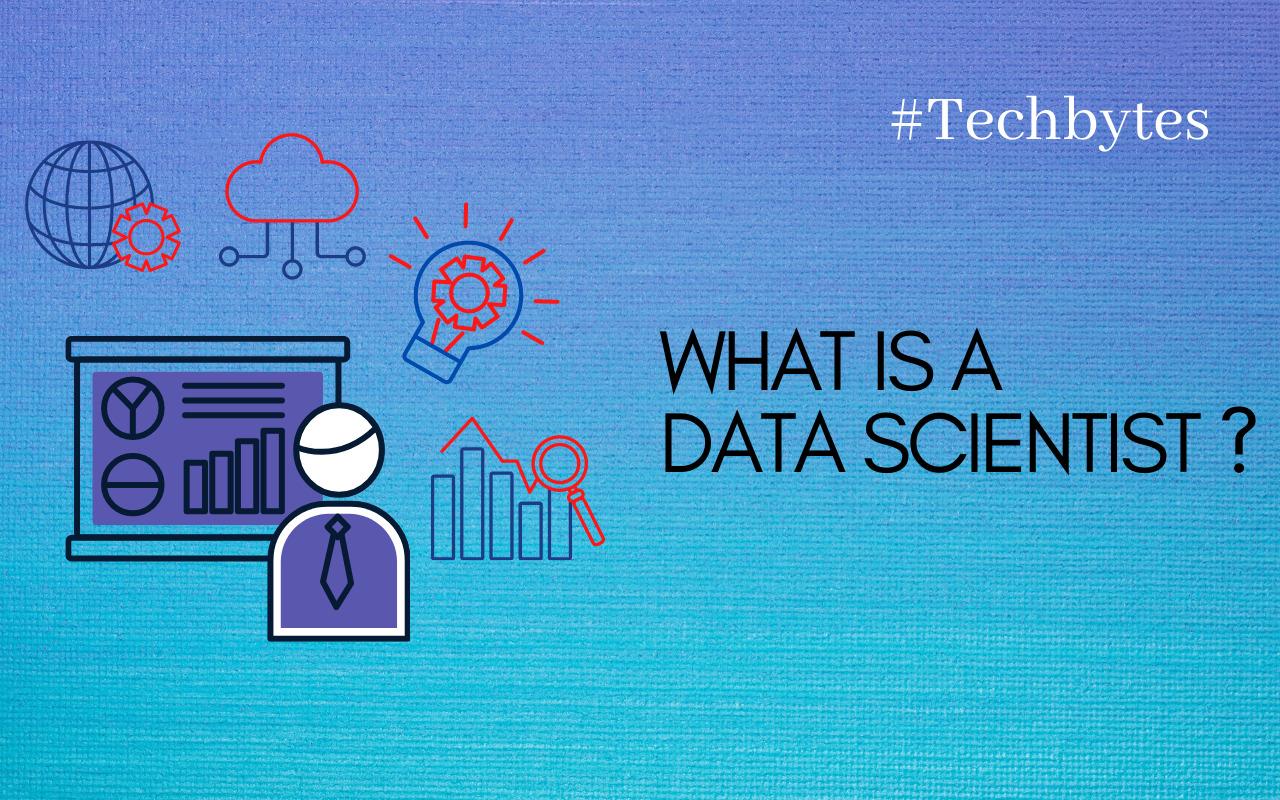
What is a Data Scientist ?
What is a Data Scientist ?
A data scientist has a big job. Their role involves analyzing structured and unstructured data and then providing an actionable look at what they’ve uncovered.
They use scientific methods to look at data from many sources, uncover trends, and organize their findings. This field requires a curious mind, a deep understanding of technology, and excellent communication skills.
Data scientists frequently work with organizations, like businesses, to solve problems. For this reason, a great data scientist will have industry knowledge so they can provide a contextual understanding of data.
One of the advantages for businesses hiring a data scientist is that this person will approach the question the business needs answers for without the existing assumptions other people working in the business may have. A data scientist will be looking at the data, not what the other people at the business may have assumed will be found.
What Makes a Great Data Scientist
Data science is an inter-disciplinary field. To be considered an experienced data scientist will generally require ten years working in the field. These experts have a lot of technical experience and specific traits that make them the best.
They Are Always Improving Their Technical Skills
A great data scientst is well educated on a number of diferent programs. This means they are always learning. They learn as much as possible before they begin their jobs, they learn while on the job, and they continue to educate themselves as they go.
A data scientist will aquire data from web servers, databases, logs, APIs, and online repositories, which means understanding how to read and sort information from these sources.
They will learn as much as they can about programming, data visualization, big data platforms, and machine learning. Programming languages like Python are a large part of their jobs.
A Curious Mind
A great data scientist will be motivated to find the answers. They want to eventually find the solution for a business, but they are curious about all of the information they gather as they go. They wonder why they are seeing any trend they notice, and are then driven to dig deeper into the data and find the answers.
Without a curious mind, many people would let patterns in data go without digging deeper. A desire to find the answers, even when it often may lead nowhere, makes a great data scientist.
Data Scientists Master Their Communication Skills
Communication is one of the most important skills for a data scientist to master. In many ways, a data scientist is a human translator between technology and the average user or business owner. They use data to help businesses find solutions to their current challenges. A great data scientist will know how to communicate with their team and their clients, which often requires very different language skills.
Meticulous Organization Skills
A data scientist seeks out patterns and answers and then organizes that information. In order to do this, they need to be meticulous. No detail is too small or to be skipped. Data science requires thorough work.
Creativity
This may come as a surprise to someone unfamiliar with data science, but creativity is an important part of a successful data scientist’s job. Part of their work will involve creating new algorithms to crawl for data or creating organized database warehouses. In order to find the data and organize it in a way that makes sense and communicates the findings, a data scientist will need a creative mind that can look at things from an analytic and creative perspective.
Drive and Patience While Seeking Out Answers
Mining data science takes time. Patience is required for this meticulous work. It can be frustrating to not find the answers right away, but an experienced data scientist understands this is part of the procss and continues to ask more questions. They are driven to find the answers, and are patient about taking their time finding them, because they know if they keep looking they will find them eventually.
How To Become A Data Scientist
There are many different roads to becoming a data scientist. Some will spend years becoming educated at a four year university and others will take shorter boot camp-like courses that will immerse them in the field. Others take less traditional paths with twisting career experiences that lead them into this field. Whatever the case, the first step to becoming a data scientist is to become well educated. This means taking a wide variety of data science classes.
There are many different fields within data science, so you will need to consider a specialization. Do you want to study artifical intelligence? Would you like to work with database management?
Then, you will work on gaining your first entry-level data scientist job, and continue learning and growing from there.
The more you grow your skill sets, in both technical skills and other important areas of your work, the better data scientist you will be.

